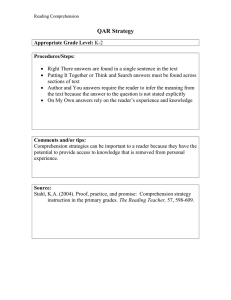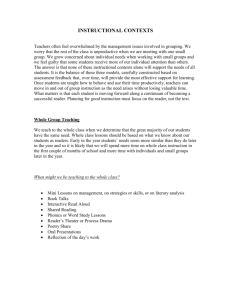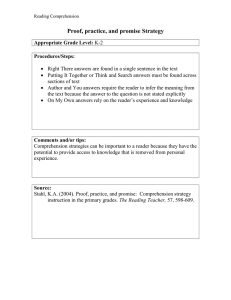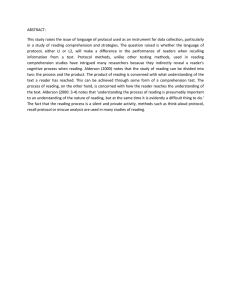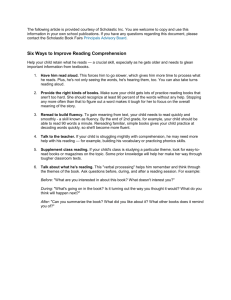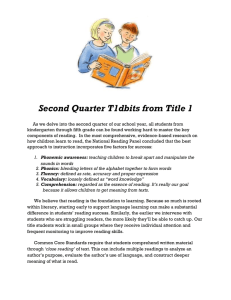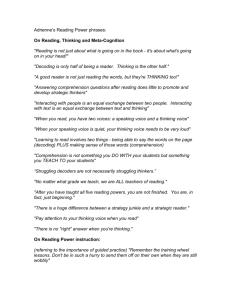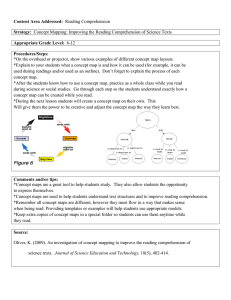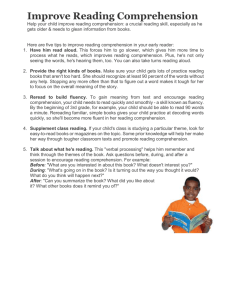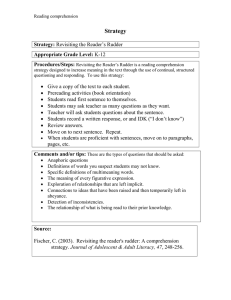As a parent, you play the most important role in... reading is the foundation for
advertisement
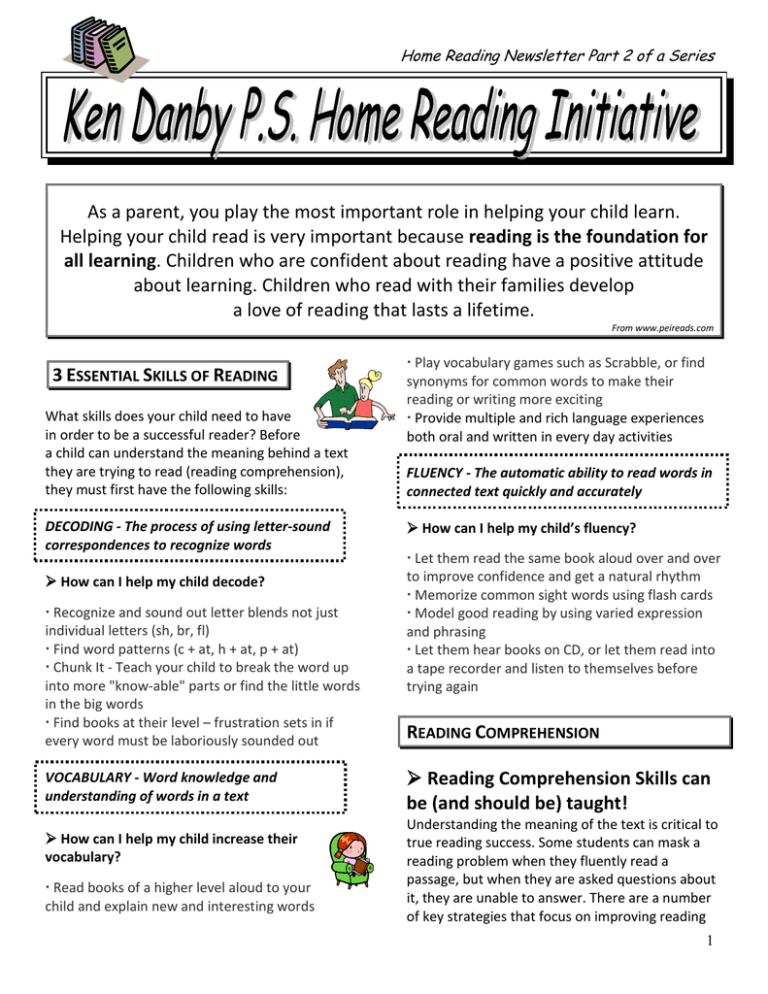
Home Reading Newsletter Part 2 of a Series As a parent, you play the most important role in helping your child learn. Helping your child read is very important because reading is the foundation for all learning. Children who are confident about reading have a positive attitude about learning. Children who read with their families develop a love of reading that lasts a lifetime. From www.peireads.com 3 ESSENTIAL SKILLS OF READINGK What skills does your child need to have in order to be a successful reader? Before a child can understand the meaning behind a text they are trying to read (reading comprehension), they must first have the following skills: DECODING - The process of using letter-sound correspondences to recognize words How can I help my child decode? Recognize and sound out letter blends not just individual letters (sh, br, fl) Find word patterns (c + at, h + at, p + at) Chunk It - Teach your child to break the word up into more "know-able" parts or find the little words in the big words Find books at their level – frustration sets in if every word must be laboriously sounded out VOCABULARY - Word knowledge and understanding of words in a text How can I help my child increase their vocabulary? Read books of a higher level aloud to your child and explain new and interesting words Play vocabulary games such as Scrabble, or find synonyms for common words to make their reading or writing more exciting Provide multiple and rich language experiences both oral and written in every day activities FLUENCY - The automatic ability to read words in connected text quickly and accurately How can I help my child’s fluency? Let them read the same book aloud over and over to improve confidence and get a natural rhythm Memorize common sight words using flash cards Model good reading by using varied expression and phrasing Let them hear books on CD, or let them read into a tape recorder and listen to themselves before trying again READING COMPREHENSION Reading Comprehension Skills can be (and should be) taught! Understanding the meaning of the text is critical to true reading success. Some students can mask a reading problem when they fluently read a passage, but when they are asked questions about it, they are unable to answer. There are a number of key strategies that focus on improving reading 1 Home Reading Newsletter Part 2 of a Series comprehension and in today’s classroom these skills are actively and explicitly taught so that every student can benefit from taking their understanding to a deeper level. These important strategies can also be used at home by parents to help their child become a better reader. Use them before reading, during reading or even after reading to help solidify your child’s understanding. INFERRING – to think about what the author implies, but does not state directly, to reach a new and deep understanding YOU COULD ASK: “Can you read between the lines and figure out what really happened?” “What clues from the text help you figure out how the main character will react?” ACTIVATING PRIOR KNOWLEDGE – to stimulate interest in reading and provide them with a foundation on which to build more knowledge. MAIN IDEA – to condense the important details to arrive at the essence of meaning. YOU COULD ASK: “What do you already know about the topic?” “Have you ever seen or done this before?” YOU COULD ASK: “Tell me what the author’s main message is” “What do you think the moral of the story was?” PREDICTING – to bring their personal experiences forward and provide incentive to read what happens next. SUMMARIZING/RETELLING – to be able to apply a number of thinking processes in order to combine meanings, delete less important details and state the important ideas in a logical sequence YOU COULD ASK: “What do you think will happen?” “What does the title tell you about the story?” VISUALIZING – to give concrete form to abstract ideas, and to use these mental pictures to extend and deepen their comprehension YOU COULD ASK: “Can you picture in your mind what you think the room looks like?” “What do you see, smell, feel, taste, or hear?” QUESTIONING – to help the reading process move forward by making sure the text makes sense to the reader YOU COULD ASK: “What does this mean?” “Why did the author choose for this to happen?” YOU COULD ASK: “Tell me what happened first, next, and finally” “What was the story all about?” MAKING CONNECTIONS – to link the text more closely to the experiences of the reader and help them relate to what is happening YOU COULD ASK: “What does this remind you of?” “Do you ever remember feeling this way too?” Read with your child each and every day. Don’t forget to ask lots of questions. Make reading time special! 2
